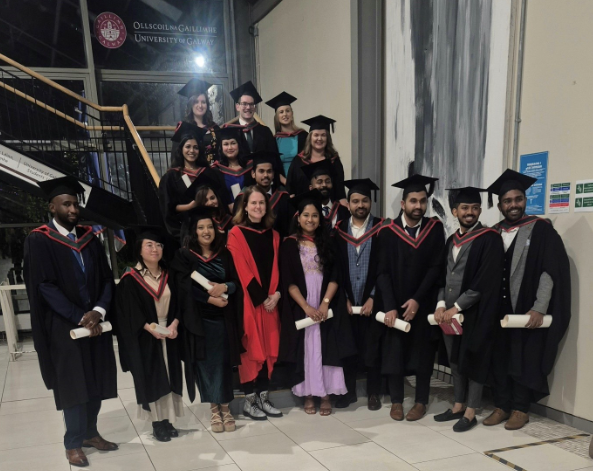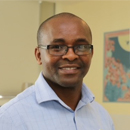-
Courses

Courses
Choosing a course is one of the most important decisions you'll ever make! View our courses and see what our students and lecturers have to say about the courses you are interested in at the links below.
-
University Life

University Life
Each year more than 4,000 choose University of Galway as their University of choice. Find out what life at University of Galway is all about here.
-
About University of Galway

About University of Galway
Since 1845, University of Galway has been sharing the highest quality teaching and research with Ireland and the world. Find out what makes our University so special – from our distinguished history to the latest news and campus developments.
-
Colleges & Schools

Colleges & Schools
University of Galway has earned international recognition as a research-led university with a commitment to top quality teaching across a range of key areas of expertise.
-
Research & Innovation

Research & Innovation
University of Galway’s vibrant research community take on some of the most pressing challenges of our times.
-
Business & Industry

Guiding Breakthrough Research at University of Galway
We explore and facilitate commercial opportunities for the research community at University of Galway, as well as facilitating industry partnership.
-
Alumni & Friends

Alumni & Friends
There are 128,000 University of Galway alumni worldwide. Stay connected to your alumni community! Join our social networks and update your details online.
-
Community Engagement

Community Engagement
At University of Galway, we believe that the best learning takes place when you apply what you learn in a real world context. That's why many of our courses include work placements or community projects.
Clinical Research (MSc)
MSc Clinical Research - (Full-time or Part-time)
College of Medicine, Nursing & Health Sciences, School of Medicine- Title of Award
- Master of Science
- Course Code
- MCR1, MCR2
- Average Intake
- 20
- Delivery
- Blended Learning
- NFQ
- Level 9
- Award Type
- Major
- Next Intake
- September 2026
- Duration
- 1 year, full-time, 2 years, part-time
- ECTS Weighting
- 90
Why Choose This Course?
Course Information
Full-time MSc (Clinical Research)
Full-time or part-time course consisting of 90 ECTS.
Compulsory Modules (Core):
Semester 1
| MD510 Fundamentals of Health Research and Evaluation Methods; 10ECTS |
| MD511 Introduction to Biostatistics I; 10ECTS |
| MD1602 Introduction to the Ethical and Regulatory Frameworks of Clinical Research; 10ECTS |
Additional Modules (Optional):
Semester 1 and 2
| MD513 Introduction to Biostatistics II; 10ECTS |
| MD514 Introduction to Research Methods for Randomized Controlled Trials; 10ECTS |
| MD515 Systematic Review Methods; 10ECTS |
| MD1541 Harnessing the Basic Biology of Cancer for Development of Novel Therapeutics; 10 ECTS |
| MD1603 Clinical Research Site Level Activities; 10 ECTS |
| MD517 Clinical Research Administration; 10ECTS |
| EC584 Health Systems and Policy Analysis; 10ECTS |
| EC572 Health Technology Assessment; 10ECTS |
| MD518 Observational and Analytical Research Methods; 10ECTS |
| MD1600 Bio-Ethics; 10ECTS |
| MD1601 Biobank—Advanced Clinical Application and Clinical Testing; 10ECTS |
PLUS
| MD520 Minor Thesis (30 ECTS), completed over the one year period. |
Part-time MSc (Clinical Research)
Students are required to complete three compulsory modules at University of Galway in year 1 of the Masters. A further 3* or 5** modules are selected from additional courses available at University of Galway.
Semester 1
| MD510 Fundamentals of Health Research and Evaluation Methods; 10ECTS |
| MD511 Introduction to Biostatistics I; 10ECTS |
| MD1602 Introduction to the Ethical and Regulatory Frameworks of Clinical Research; 10ECTS |
Additional Modules (Optional):
Semester 1 and 2
| MD513 Introduction to Biostatistics II; 10ECTS |
| MD514 Introduction to Research Methods for Randomized Controlled Trials; 10ECTS |
| MD515 Systematic Review Methods; 10ECTS |
| MD1541 Harnessing the Basic Biology of Cancer for Development of Novel Therapeutics; 10 ECTS |
| MD1603 Clinical Research Site Level Activities; 10 ECTS |
| MD517 Clinical Research Administration; 10ECTS |
| EC584 Health Systems and Policy Analysis; 10ECTS |
| EC572 Health Technology Assessment; 10ECTS |
| MD518 Observational and Analytical Research Methods; 10ECTS |
| MD1600 Bio-Ethics; 10ECTS |
| MD1601 Biobank—Advanced Clinical Application and Clinical Testing; 10ECTS |
PLUS
| MD520 Minor Thesis (30 ECTS), completed over the 2- year period. |
OR
| ** MD519 Independent Study Module (10 ECTS) completed and assessed by University of Galway. |
Curriculum Information
Curriculum information relates to the current academic year (in most cases).Course and module offerings and details may be subject to change.
Glossary of Terms
- Credits
- You must earn a defined number of credits (aka ECTS) to complete each year of your course. You do this by taking all of its required modules as well as the correct number of optional modules to obtain that year's total number of credits.
- Module
- An examinable portion of a subject or course, for which you attend lectures and/or tutorials and carry out assignments. E.g. Algebra and Calculus could be modules within the subject Mathematics. Each module has a unique module code eg. MA140.
- Subject
- Some courses allow you to choose subjects, where related modules are grouped together. Subjects have their own required number of credits, so you must take all that subject's required modules and may also need to obtain the remainder of the subject's total credits by choosing from its available optional modules.
- Optional
- A module you may choose to study.
- Required
- A module that you must study if you choose this course (or subject).
- Required Core Subject
- A subject you must study because it's integral to that course.
- Semester
- Most courses have 2 semesters (aka terms) per year, so a three-year course will have six semesters in total. For clarity, this page will refer to the first semester of year 2 as 'Semester 3'.
Year 1 (90 Credits)
OptionalEC584: Economic Evaluation in Health Care - 10 Credits - Semester 1OptionalMD1541: Harnessing the Basic Biology of Cancer for Development of Novel Therapeutics - 10 Credits - Semester 1
OptionalMD1603: Clinical Research Site Level Activities - 10 Credits - Semester 1
RequiredMD1602: Introduction to the Ethical and Regulatory Frameworks of Clinical Research - 10 Credits - Semester 1
RequiredMD520: THESIS - 30 Credits - Semester 1
RequiredMD511: Introduction to Biostatistics I - 10 Credits - Semester 1
RequiredMD510: Fundamentals of Health Research & Evaluation Methods - 10 Credits - Semester 1
OptionalEC572: Health Systems & Policy Analysis - 10 Credits - Semester 2
OptionalMD514: Introduction to Research Methods for Randomized Controlled Trials - 10 Credits - Semester 2
OptionalMD515: Systematic Review Methods - 10 Credits - Semester 2
OptionalMD517: Clinical Research Administration - 10 Credits - Semester 2
OptionalMD1604: Biobanking for Clinical Research - 10 Credits - Semester 2
OptionalMD1605: Observational Studies & Biostatistics - 10 Credits - Semester 2
- Tailored for Future Leaders: This program is ideal for individuals aspiring to become independent clinical investigators or clinical research professionals leading research teams. Its flexible structure accommodates working professionals, offering part-time study options alongside full-time employment.
- Expert-Led Learning: Delivered by experienced senior researchers, academics, and healthcare professionals from the University of Highlight specialist skills or expertise developed as part of the Galway and Saolta University Health Care Group, the program combines face-to-face and online learning for a dynamic educational experience.
- Diverse Career Pathways: Graduates are equipped to thrive in a wide range of roles, reflecting the growing importance of clinical research. Career opportunities span universities, the pharmaceutical industry, clinical research organizations, hospitals, government bodies, and independent funding agencies. Additional avenues include roles in teaching, consulting, and advisory capacities.
Special Features of the MSc in Clinical Research
Under the guidance of experienced professionals and researchers from University of Galway and Saolta University Health Care Group, students will gain valuable insights into clinical trials, evidence-based medicine, and patient-centered research. This program is closely linked with the Institute for Clinical Trials and the HRB Clinical Research Facility, Galway.
Course Webinar Recording Watch the recording from the Virtual Postgraduate Open Day, November 2020, here.
Graduates of the MSc in Clinical Research are well-prepared to advance into impactful roles as principal investigators (PIs) or essential team members in the planning, management, and oversight of clinical research projects. These roles are highly sought after in diverse sectors, including academia, pharmaceutical companies, clinical research organizations
(CROs), hospitals, government agencies, and independent funding bodies.
Further career pathways include opportunities in teaching, consultancy, and advisory positions, reflecting the programme's emphasis on producing versatile professionals ready to shape the future of clinical research.
For more information on further career paths, please see here.
Clinical Trial Fellowship
- For the information document, please click here.
- To download the form referenced in the information document, click here
Clinical Trial Fellowship Eligibility
- Offered and accepted a full-time position in the MSc in Clinical Research program.
- Available to commit to working 20 hours per week in the Clinical Research Facility or an affiliated research department.
The program offers flexible study options:
- Full-time: Complete the MSc in 1 year.
- Part-time: Pursue the Clinical Research Methodology track over 2 years.
Year 1 is conducted at the University of Galway, while Year 2 combines distance learning with on-site modules provided by the University. This dynamic program empowers healthcare professionals to make a meaningful impact in advancing medical science and improving patient care.
Students are required to complete 3 compulsory modules (MD510, MD511 and MD1602). Further optional modules are selected from modules available at University of Galway and/or via distance learning, subject to availability and pre-approval. Modules and research selected will total 90ECTS credits.
Assessment will take the form of formal, end-of-module examinations as well as continuous assessment, evaluation of contribution to group discussions and module projects. Semester 1 exams take place in December; Semester 2 exams take place in April/May. The research thesis is submitted in August.
The 2026 Full-Time MSc Clinical Research is closed. Any current applications will be put on a waiting list.
The 2026 Part-Time MSc Clinical Research is currently open.
Clinical Trial Fellowship
- For the information document, please click here.
- To download the form referenced in the information document, click here
Clinical Trial Fellowship Eligibility
- Offered and accepted a full-time position in the MSc in Clinical Research program.
- Available to commit to working 20 hours per week in the Clinical Research Facility or an affiliated research department.
Celebrating a remarkable milestone!
Congratulations to the MSc Clinical Research programme on producing over 300 exceptional graduates since 2011. Your contributions to advancing clinical research ehave been invaluable to healthcare innovation and patient care.
To all graduates: Your dedication to advancing healthcare through research and analytics is truly inspiring. Wishing you continued success as you apply your expertise to transform patient care and medical research!
MSc Clinical Research Class of 2023 Graduation, November 2024
Diabetes Collaborative CTN Scholarships
The Diabetes Collaborative CTN (DC-CTN) is pleased to announce two €10,000 scholarships to be made available through Galway University Foundation with industry partners Menarini and Novo Nordisk. Both scholarships are intended to support Masters students in research programmes, commencing academic year 2025/26, to build capacity, skills and knowledge in the conduct of clinical trials, by means of providing financial support. They are designed to equip the next generation of healthcare professionals with the skills and knowledge to excel in the clinical research field and to serve as a pathway for transforming medical discoveries into clinical applications, fostering efficiency and innovation for those engaging in trial activity.
The Menarini scholarship will support one Masters student with an award of €10,000 for one year of full-time study or two years of part-time study in the MSc in Clinical Research programme at University of Galway.
The Novo Nordisk scholarship will support one Masters student with an award of €10,000 for one year of full-time study or two years of part-time study in the MSc (Clinical Research), MSc (Applied Clinical Data Analytics) or MSc (Evidence-Based Future Healthcare) programmes at University of Galway.
To be considered for a MSc Scholarship Award, all applicants will be required to have accepted an offer on the relevant MSc programme at University of Galway. Thereafter, they must complete a scholarship application form, supply a personal statement, provide details of any previous research, provide a copy of their most up-to-date Curriculum Vitae, confirm membership/membership affiliation of the DC-CTN, along with providing any other appropriate supporting evidence and/or documentation.
Closing date for both scholarship applications is 5:00P.M. Monday 15th September 2025.
For further information on relevant MSc programmes and scholarships, please see below:
Menarini Scholarship Information:
Menarini Scholarship Information
Menarini Scholarship Application Form (Microsoft Forms)
Novo Nordisk Scholarship Information
For general queries, please contact:
clinicalresearch@universityofgalway.ie
Programme Director:
Dr Sonja Khan
Lecturer & Head of Education at the Institute for Clinical Trials
Institute for Clinical Trials, Clinical Research Facility,
University of Galway
E: sonja.khan@universityofgalway.ie
Q: Could you please let me know how many times do I need to attend Classes in Galway per semester?
A: This will depend on the modules you choose. In semester 1 you will need to complete three core modules, one of which is delivered online and the remaining two are delivered on Friday’s.
Q: Do you provide any financial assistance for this program for permanent residents in Ireland?
A: The program does not provide financial assistance. However, there are a number of opportunities from University of Galway. Please review the following sites: https://www.universityofgalway.ie/faf/
Q: I am writing to you to inquire as to whether or not a 2.1 Hons BSc Biotechnology would be sufficient for entry to the MSc Clinical Research course.
A: Students must have completed either of the following:
- An undergraduate degree in medicine.
- Other healthcare related undergraduate degree with a minimum of 2nd Class Honours.
- Biomedical science-related undergraduate degree with a minimum of 2nd Class Honours.
Applicants from non-healthcare related degrees will be considered (minimum requirement of 2nd Class Honours, Grade 1*) on a case-by-case basis at the discretion of the coordinators.
Q: Kindly let me know about the deadline to apply for this course?
A: The deadline for applications is the 26th May. We advise students to apply as soon as possible, we provide a response within 10 working days, application via http://www.universityofgalway.ie/courses/taught-postgraduate-courses/clinical-research.html
Q: What is the start date for the MSc in Clinical Research?
A: Early September, please check University of Galway Academic calendar for term dates - 25-26-Academic Calendar
Q: Are Admissions open once or twice in a year?
A: Once a year in September.
Q: Is there any live broadcasting facility, as I am based in Dublin and might not be able to attend all the lectures with schedule?
A: No, we don’t support live broadcasting. However we do provide learning materials and lecture slides (at discretion of module leaders) on our Virtual Learning Environment platforms in advance to lectures. Our program contains blended learning, this means that a number of our optional and core modules are delivered entirely online, we provide web conferencing tools to communicate with students as well to enhance student learning and provide feedback.
Q: I would also like to know more about scholarships available as I require a scholarship to complete my course.
A: Please check out the following link for more information: https://www.universityofgalway.ie/internationalscholarships/
Another opportunity is to apply for the Government of Ireland-International Education Scholarship.
Regarding scholarships or funding opportunities please contact the Postgraduate Admissions office in University of Galway E: postgradadmissions@universityofgalway.ie or Ph: +353 91 495 999.
For scholarship or for fee waiver for International students, you need to contact our International office in University of Galway for more information https://www.universityofgalway.ie/international-students/
International Postgraduate Admissions: Dominica Moran - Deputy Admissions Officer (Postgraduate) E: internationaladmissions@universityofgalway.ie
Application deadline is in the end of May and interviews will be held in June (this can be facilitated via Skype for international students). https://www.universityofgalway.ie/courses/taught-postgraduate-courses/clinical-research.html
Q: I did my MBBS degree in English do I need to do the IELTS exam? I also have a Cambridge GCE English A grade
A: In Relation to your query about the English language test, if you have proof that your MBBS degree was carried out in English then we won’t require an IELT score.
Q: How is the course recognized with a global perspective?
A: Our program was one of the first MSc programs of its kind in Ireland, course contributors include senior academics and medical professionals from University of Galway, and Saolta University Health Care Group who are actively engaged in clinical research. This programme is closely linked with the HRB Clinical Research Facility, Galway. We make full use of traditional and modern educational methods. School members are engaged in innovative research in many areas, with particular emphasis on cancer, gene and stem cell therapy and biomedical engineering science.
Q: Can I take up a part time job at the same time to add value to my profile?
A: We don’t offer part-time employment at the Clinical Research Facility, applicants can apply for our HRB fellowship. It is important to note we only accept 2-3 students. Students must have accepted a place on the program to be eligible for the fellowship. If successful they work with us in the Clinical Research Facility for the duration of the MSc (12 months) and get a stipend of €1,000 per month.
Application deadline is the end of May, and interviews will be held in June (this can be facilitated via Skype for international students).
http://www.universityofgalway.ie/courses/taught-postgraduate-courses/clinical-research.html
Q: Would you recommend an on campus hostel or outside facilities available?
A: University of Galway offer student accommodation, there are also other opportunities such as Daft website to search for rental opportunities
https://www.universityofgalway.ie/student-life/accommodation/
https://www.daft.ie/property-for-rent/ireland
Q: Since the entry requirements required a transcript, which transcripts should I be submitting in my application?
A: You should submit your results from your degree, ideally the most recent on you graduated from
Q: How competitive is the program?
A: We take approximately 10-15 Full time students and 15 Part time student, we review based on grades and the information provided in the Personal statement, which highlights the interest to pursue an MSc in Clinical Research and how it will benefit your career.
Q: The deadline to submit the application is 26 May, but when is the recommendation deadline?
A: We advise students to apply as soon as possible, we provide a response within 10 working days, application via https://www.universityofgalway.ie/courses/taught-postgraduate-courses/clinical-research.html
Q: Are there opportunities to network and interact with industry leaders?
A: In the past we have provided guest lecture and seminar from relevant professionals in the field of clinical research that was open for MSc students to attend.
Q: How do the university support students in their job search?
A: We provide updates on appropriate job opening via email and social media. University of Galway offers seminars and workshops throughout the year to support student’s career development. University of Galway Career development centre https://www.universityofgalway.ie/career-development-centre/
Q: What's the most successful career path for the graduate of this
program?
A: This varies depending on the student’s background, we have a diverse student population from clinicians, nurses, Principle Investigators, medical device engineers to undergraduate biomedical students and pharmacists who pursue this program. As a result it would really depend. Employment opportunities within clinical research depend on your background (clinical/healthcare professional / non-healthcare professional), level of formal training (post graduate qualification) and experience. For most roles within clinical research, you will need formal training and experience relevant to the area of research you wish to work in. Common positions include clinical research assistant, clinical research associate, data manager (junior/senior), project coordinator, project manager. There are more senior roles but depend on your level of experience.
Q: Do we have on campus placements available for this program?
A: No, we don’t offer placements. However there is a possibility to apply for the HRB Fellowship with us. The HRB-CRFG MSc Clinical Research Fellowship is awarded to assist a select number of graduate students entering the programme to gain experience in day-to-day clinical research activities. The fellowship students will work in the HRB Clinical Research Facility Galway for a defined period, across a variety of disciplines including clinical, co-ordinator/project management, data management, pharmacovigilance, quality and regulatory affairs, and research support. Fellowship students will gain a greater understanding of the practical conduct of clinical research, clinical research practice guidelines and data entry requirements. These skills will contribute to students’ overall learning and are transferable to clinical research practice in medicine, nursing and related healthcare-related specialties. The fellowship is only open to full-time MSc Clinical Research Students who have been offered and have accepted a place on the programme. For more information get in touch with the course leaders.
Q: How students usually support themselves financially during the course, in case required?
A: This depends on the individual, they can pursue or continue their employment and take the Masters on a part-time (24 month) basis, or undertake the masters full-time (12 months). We generally don’t advise student to take the MSc on a full-time basis when employed full-time.
Q: You have been seeing a lot of students graduating from this program, any tips to make the best out of this course?
A: To make connections with peers and module leaders while undertaking this program. Take advantage of a wide range of seminars and tutorial that are available throughout the academic year and open further connections. When thinking of your thesis project, we advise you to seek out a potential supervisor early and align their field of research to yours. This will open new opportunities for students.
Q: I would like to know that is any fee waiver given for International students in taught MSc Clinical research programme.
A: This would need to be discussed with colleagues in University of Galway, first port of call would be the international Student office https://www.universityofgalway.ie/international-students/
Q: Also to receive any scholarship firstly how to proceed forward, i.e. first apply online for the programme or apply for the scholarship.
A: You would need to contact postgraduate Admission office in University of Galway for more information on the process of applying for funding in University of Galway.
https://www.universityofgalway.ie/postgraduate_scholarships/
https://www.universityofgalway.ie/courses/how-to-apply/
Q: What does the Fellowship cover?
A: The HRB-CRFG MSc Clinical Research Fellowship is awarded to assist a select number of graduate students entering the programme to gain experience in day-to-day clinical research activities. The fellowship students will work in the HRB Clinical Research Facility Galway for a defined period, across a variety of disciplines including clinical, co-ordinator/project management, data management, pharmacovigilance, quality and regulatory affairs, and research support. Fellowship students will gain a greater understanding of the practical conduct of clinical research, clinical research practice guidelines and data entry requirements. These skills will contribute to students’ overall learning and are transferable to clinical research practice in medicine, nursing and related healthcare-related specialties. The fellowship is only open to full-time MSc Clinical Research Students who have been offered and have accepted a place on the programme. For more information get in touch with the course leaders.
Q: I have applied for the course on January 4th. By when can I expect a reply?
A: Generally, a decision will be made within 10 working days.
Q: What is the fees structure?
A: Check with Fees Office or on our website https://www.universityofgalway.ie/student-fees/pg_pg
Q: When should I apply for the course?
A: Application for this program open between October and May and are made online https://www.universityofgalway.ie/courses/taught-postgraduate-courses/clinical-research.html , we aim to provide an outcome to applicants within 10 working days, this should give you the opportunity to plan ahead for this program and apply for funding.
Q: Let me know what employment opportunities there are after completing course.
A: Employment opportunities within clinical research depend on your background (clinical/healthcare professional / non-healthcare professional), level of formal training (post graduate qualification) and experience. For most roles within clinical research, you will need formal training and experience relevant to the area of research you wish to work in. Common positions include clinical research assistant, clinical research associate, data manager (junior/senior), project coordinator, project manager. There are more senior roles but depend on your level of experience.
Applicants with significant relevant experience will also be considered for this programme.
As part of the RPL in Higher Education project the RPL team in the University is encouraging Programme Directors provide RPL information.
If you have any questions about RPL, please contact:
Suzanne Golden Recognition of Prior Learning Project Lead/ Flexible Learning Development Officer suzanne.golden@universityofgalway.ie
Accreditations & Awards
Meet our Employers
Entry Requirements and Fees
Students must have completed one of the following:
- An undergraduate degree in medicine.
- Another healthcare-related undergraduate degree with a minimum of 2nd Class Honours
- A biomedical science-related undergraduate degree with a minimum of 2nd Class Honours
Applicants from non-healthcare related degrees will be considered on a case-by-case basis at the discretion of the coordinators (minimum requirement of 2nd Class Honours). Applicants with significant relevant experience will also be considered.
All applicants whose first language is not English, or who have not been educated through the medium of English language during their two most recent years of study, must meet the University of Galway's English.
Language Requirements. For details on accepted qualifications, please refer to the English language requirements on the following page:
https://www.universityofgalway.ie/global-galway/studyinireland/entryrequirements/
The University no longer accept Duolingo for entry. However, if your level is below IELTS 6.5, you could do a pre-sessional course aimed at preparing you for progression to this course.
Applicants who do not meet the primary entry criteria as described above will be declined entry into the program. The remaining applicants will be reviewed in closer detail, with significant weight placed on: A) The applicant’s personal statement describing their motivation for applying to this course and their career aspirations following the successful completion of the MSc. B) The applicant’s previous academic performance. C) The applicant’s referee’s comments. This programme is eligible under the Interim List of Eligible Programmes (ILEP, Ireland's official register of approved educational programs that can accept international students requiring study visas, ensuring programs meet quality standards for immigration purposes.
The 2026 Full-Time MSc Clinical Research is closed. Any current applications will be put on a waiting list.
The 2026 Part-Time MSc Clinical Research is currently open.
You can apply online to the University of Galway application portal here.
Please review the entry requirements set out in the section above. You will be required to upload supporting documentation to your application electronically. See the section above on entry requirements for further information on the supporting documentation required for this course.
Closing Dates
The 2026 Full-Time MSc Clinical Research is closed. Any current applications will be put on a waiting list.
The 2026 Part-Time MSc Clinical Research is currently open.
Notes
- You will need an active email account to use the website and you'll be guided through the system, step by step, until you complete the online form.
- Browse the FAQ's section for further guidance.
Fees for Academic Year 2026/27
| Course Type | Year | EU Tuition | Student Contribution | Non-EU Tuition | Levy | Total Fee | Total EU Fee | Total Non-EU Fee |
|---|---|---|---|---|---|---|---|---|
| Masters Full Time | 1 | €9,400 | €19,900 | €140 | €9,540 | €20,040 | ||
| Masters Part Time | 1 | €5,600 | €140 | €5,740 |
For 26/27 entrants, where the course duration is greater than 1 year, there is an inflationary increase approved of 1.8% per annum for continuing years fees.
Postgraduate students in receipt of a SUSI grant – please note an F4 grant is where SUSI will pay €4,500 towards your tuition (2026/27). You will be liable for the remainder of the total fee. A P1 grant is where SUSI will pay tuition up to a maximum of €6,270. SUSI will not cover the student levy of €140.
Note to non-EU students: learn about the 24-month Stayback Visa here.
Postgraduate Excellence Scholarships
This scholarship is valued at €1,500 for EU students applying for full-time taught master's postgraduate courses. You will be eligible if:
- You have been accepted to a full-time taught master's course at University of Galway,
- You have attained a first class honours (or equivalent) in a Level 8 primary degree.
An application for the scholarship scheme is required (separate to the application for a place on the programme). The application portal for 2025 is now open and available here. Applications will close on the 30th September 2025. Full details available here.
Global Scholarships
University of Galway offers a range of merit-based scholarships to students from a number of countries outside of the EU. Visit here for schemes currently available.
Diabetes Collaborative CTN Scholarships
The Diabetes Collaborative CTN (DC-CTN) is pleased to announce two €10,000 scholarships to be made available through Galway University Foundation with industry partners Menarini and Novo Nordisk. Both scholarships are intended to support Masters students in research programmes, commencing academic year 2025/26, to build capacity, skills and knowledge in the conduct of clinical trials, by means of providing financial support. They are designed to equip the next generation of healthcare professionals with the skills and knowledge to excel in the clinical research field and to serve as a pathway for transforming medical discoveries into clinical applications, fostering efficiency and innovation for those engaging in trial activity.
The Menarini scholarship will support one Masters student with an award of €10,000 for one year of full-time study or two years of part-time study in the MSc in Clinical Research programme at University of Galway.
The Novo Nordisk scholarship will support one Masters student with an award of €10,000 for one year of full-time study or two years of part-time study in the MSc (Clinical Research), MSc (Applied Clinical Data Analytics) or MSc (Evidence-Based Future Healthcare) programmes at University of Galway.
To be considered for a MSc Scholarship Award, all applicants will be required to have accepted an offer on the relevant MSc programme at University of Galway. Thereafter, they must complete a scholarship application form, supply a personal statement, provide details of any previous research, provide a copy of their most up-to-date Curriculum Vitae, confirm membership/membership affiliation of the DC-CTN, along with providing any other appropriate supporting evidence and/or documentation.
Closing date for both scholarship applications is 5:00P.M. Monday 15th September 2025.
For further information on relevant MSc programmes and scholarships, please see below:
Menarini Scholarship Information:
Menarini Scholarship Information
Menarini Scholarship Application Form (Microsoft Forms)
Novo Nordisk Scholarship Information
Application Process
Students applying for full time postgraduate programmes from outside of the European Union (EU), You can apply online to the University of Galway application portal here.
Our application portal opens on the 1st October each year for entry the following September.
Further Information
Please visit the postgraduate admissions webpage for further information on closing dates, documentation requirements, application fees and the application process.
For general queries, please contact:
E: clinicalresearch@universityofgalway.ie
Why University of Galway?
World renowned research led university nestled in the vibrant heart of Galway city on Ireland's scenic West Coast.
Downloads
Meet Our Alumni
Course Introduction
Educating Clinicians to Advance Research and Care
The MSc in Clinical Research equips healthcare professionals with skills to excel in clinical research. It blends theory and hands-on experience, covering study design, data analysis, ethics, and regulations. Ideal for those aiming to become independent investigators or clinical research professionals, it fosters innovation and translates discoveries into clinical practice.
MSc Clinical Research 2025 - Handbook














.png)















